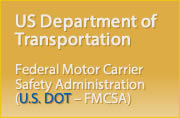
Forms
- If you are out of work - take a withdrawal (PDF) Fill out this form and return it to Local 813. The cost of requesting a withdrawal card is only 50 cents.
- If you move - please send us your new address
Visit Related Organizations
Your Rights
Know Your Rights
As a worker, you have certain rights under the law in your workplace. These include:
- NYC Earned Sick Leave Act
- Weingarten Rights
- Wage & Hour Laws
- Health & Safety Laws
- Civil Rights Laws
- American with Disabilities Act
- Family & Medical Leave Act
As a member of Local 813, you have rights under the union contract. The contract is a written agreement between the union and your employer, and your employer is obligated to follow the contract. It is not a suggestions; it is binding.
Ask your steward for a copy of the union contract!
If your employer violates the contract, you have the right to file a grievance to make him obey the contract.
Your Rights Under the Law
If you are called to a disciplinary meeting, or a meeting you think might result in disciplinary action, you have the right to union representation. Read them your Weingarten Rights:
"If this discussion could in any way lead to my being disciplined or terminated, or affect my personal working conditions, I respectfully request that my union representative or steward be present at this meeting. If this discussion could lead to my being disciplined and you deny my request for representation, I choose not to answer any questions."
In 1975, the U.S. Supreme Court ruled, in the Weingarten Decision, that an employee is entitled to have a union representative present during any interview which may result in his or her discipline. It is up to you to insist on union representation. If you fail to do so, you may waive your rights.
The Fair Labor Standards Act requires that workers be paid at least the minimum wage (currently $5.15 an hour) and that they be paid overtime for any hours worked beyond 40 hours a week. The overtime pay must be at least one and a half times the regular pay rate. The law also outlaws child labor.
Wage and hour laws are enforced through the Wage and Hour Division of the U.S. Department of Labor. Click here for their website.
You have the right to be trained in hazards on your job, to know what chemicals you are working with and to access records concerning your health.
You have the right to seek a safe and healthful workplace without fear of retaliation from your employer. This includes complaining to your employer, your union, the Occupational Safety and Health Administration (OSHA) or any other government agency, or participating in an OSHA inspection or in other OSHA-related activities.
You have the right to talk privately and confidentially to an OSHA compliance officer.
If you feel like you have been discriminated against for exercising these rights, you can file a complaint with OSHA. You must file the complaint within 30 days of the time you learned of the discrimination.
You should contact your steward or business agent if you have any concerns about health and safety issues. If you want to file and OSHA complaint, they can help you do that as well.
For more information about workplace health and safety, check out the New York Committee on Occupational Safety and Health (NYCOSH). Click here to visit their website.
The Civil Rights Law of 1965 prohibits workplace discrimination on the basis of race, color, religion, sex or national origin.
This law and other civil rights statutes are enforced by the Equal Employment Opportunity Commission (EEOC). Click here to visit their website.
Americans with Disabilities Act
The Americans with Disabilities Act (ADA) was passed in 1990. It prohibits discrimination against people with disabilities in areas of employment, public services, public and private transportation, public accommodations and telecommunications services. The act protects more than 49 million Americans with physical and mental impairments.
The workplace discrimination provisions of the ADA are enforced through the Equal Employment Opportunity Commission (EEOC). Click here for more information.
The Family and Medical Leave Act (FMLA) was passed in 1993. It allows eligible employees to take up to 12 weeks of unpaid leave from their jobs for the birth, adoption or foster placement of a child; for a seriously ill family member (parent, spouse or child); or for their own serious health conditions.
The FMLA is enforced through the Wage and Hour Division of the U.S. Department of Labor. Click here to visit their website.
Click here to read about the FMLA on our site, in the Members Corner.




